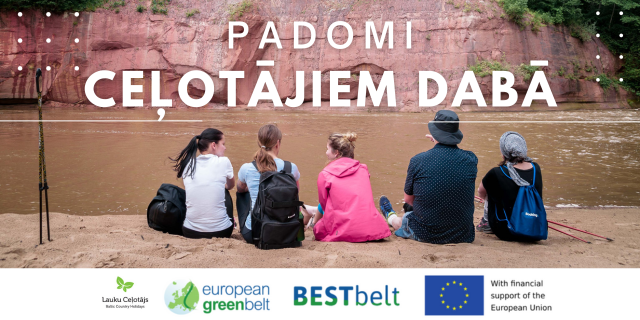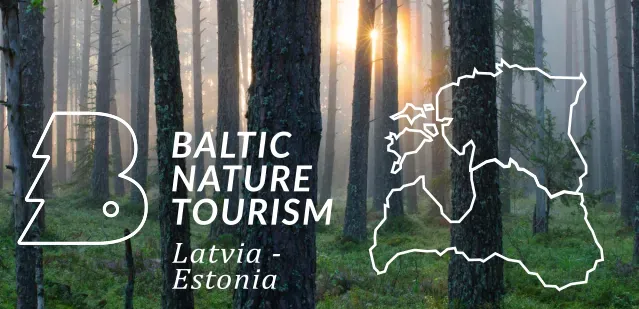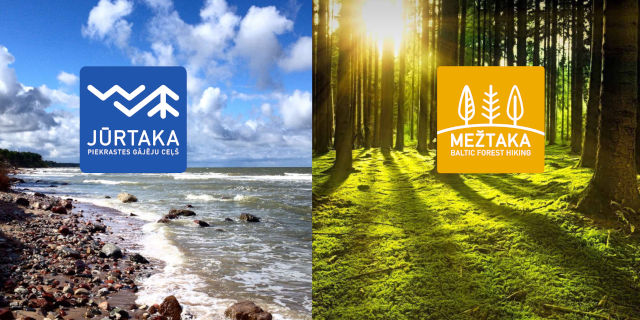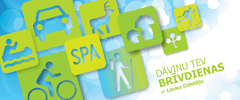
|
Welcome to the Dviete Wetlands!There are new routes for cycling, canoeing, self-drive and nature watching developed in the Dviete Wetlands. The new tourism products are aimed for tourists who are self planning their travels. Just print out the route description with attached map and enjoy your trip! Every route description includes: short description of points of interest, information about available tourism services and accommodations, contact information for bike/boat rentals, tourism information boards etc.
If you plan to stay in the territory more than one day choose one of offered accommodations or call Lauku celotajs for booking.
There is more practical information available also in our travel guides and tour maps |
|
|
|
|
 |
Canoeing |
|
|

|
 |
Boating During the Flooding of the Dviete |
This is a route for people who enjoy extreme or non-traditional water tourism, even though the descent in the Dviete River is no more than one metre in this part of the region. During flooding season, vast territories may become flooded, and that will affect your trip.
| Time |
Flooding season, early April to early May. |
| Distance |
13 km |
| Duration |
~ 2 - 4 h |
| Type of boat |
Canoes, seagoing boats, rubber boats, etc. |
| Difficulty |
Easy |
| Start |
The bridge across the Dviete at Bebrene, where the road is a bit wider and there is an information stand. Locals may call it the Sloboda Bridge. |
| End |
The bridge at Munči, 1 km before the place where the Dviete flows into the Daugava. The area around the bridge may be flooded to the point where the bridge is not accessible. In that case, you can return to the Dviete bridge (2.5 km). From the Munči bridge, you can continue upriver along the Ilūkste River all the way to Ilūkste. |
| Alternatives |
You can start in Ilūkste and go down the Ilūkste River. Alternatively, you can go “upstream” to Ilūkste along the flooded wetlands of Dviete. |
| Distance from Rīga |
200 km (via Nereta and Aknīste)
|
| Logistics |
Arrange for a car to pick you up at the end of the route. |
| Note |
Large areas will flood, and so make sure that your boat is stable. Be responsible for your safety and that of your children.
|
Route description/ map
|
 |
|

|

|

|

|
|
 |
Nature watching |
|
|
 |
 |
Dragon-flies at the Dviete Wetlands |
The route is intended for dragon-fly watchers going by car, by bicycle, or walking. The dragon-flies are interesting to watch - you need only a camera for photo shooting or binoculars for their undisturbed viewing. The splendour and acrobatic flight of dragonflies is amazing and the determination of species is rather easy.
|
 |
Time |
In summer. The flight time of dragonflies varies among species, but mainly it is from April to October. If you plan one trip in May or early June, and another one – at the end of July or August, then your chance to see all the represented here dragonfly species will be the greatest. |
| Distance |
~ 40 km. |
| Route |
Kaldabruņa-Bebrene-Dviete-Mušķi |
 |
Duration |
Two days |
| Routes availability |
No signs provided. You need to use a good terrain map. In several places you are recommended to travel by radial routes on foot, taking into account the dragonfly’s watching peculiarities |
| Road surface |
Mainly dirt roads on the spot, but in plain relief, which makes driving a car or a bike particularly attractive. |
 |
Alternatives |
Dragonfly-watching may well be supplemented by photographing butterflies or combined with fishing. Dviete floodplain also provides bird and plant watching facilities. You can visit the wild horse and cow herds and an observation tower on the shore of Skuķu lake, see the beautiful churches or go hiking along Pilskalnes Siguldiņa trails, as well as go boating, especially during floods. |
 |
Optics for watching |
Dragonflies can be mostly accessed close enough and easily watched with naked eye. Sometimes, however, binoculars can be used (optimally with eight-time magnification) - similar to bird watching. Camera with at least 100mm lens or a good shot zoom capability will be very useful. |
|
Route description/ map |
 |
|

|

|
Supported by a grant from Iceland, Liechtenstein and Norway through the EEA Financial Mechanism and the Norwegian Financial Mechanism |
|
|
|
|



















